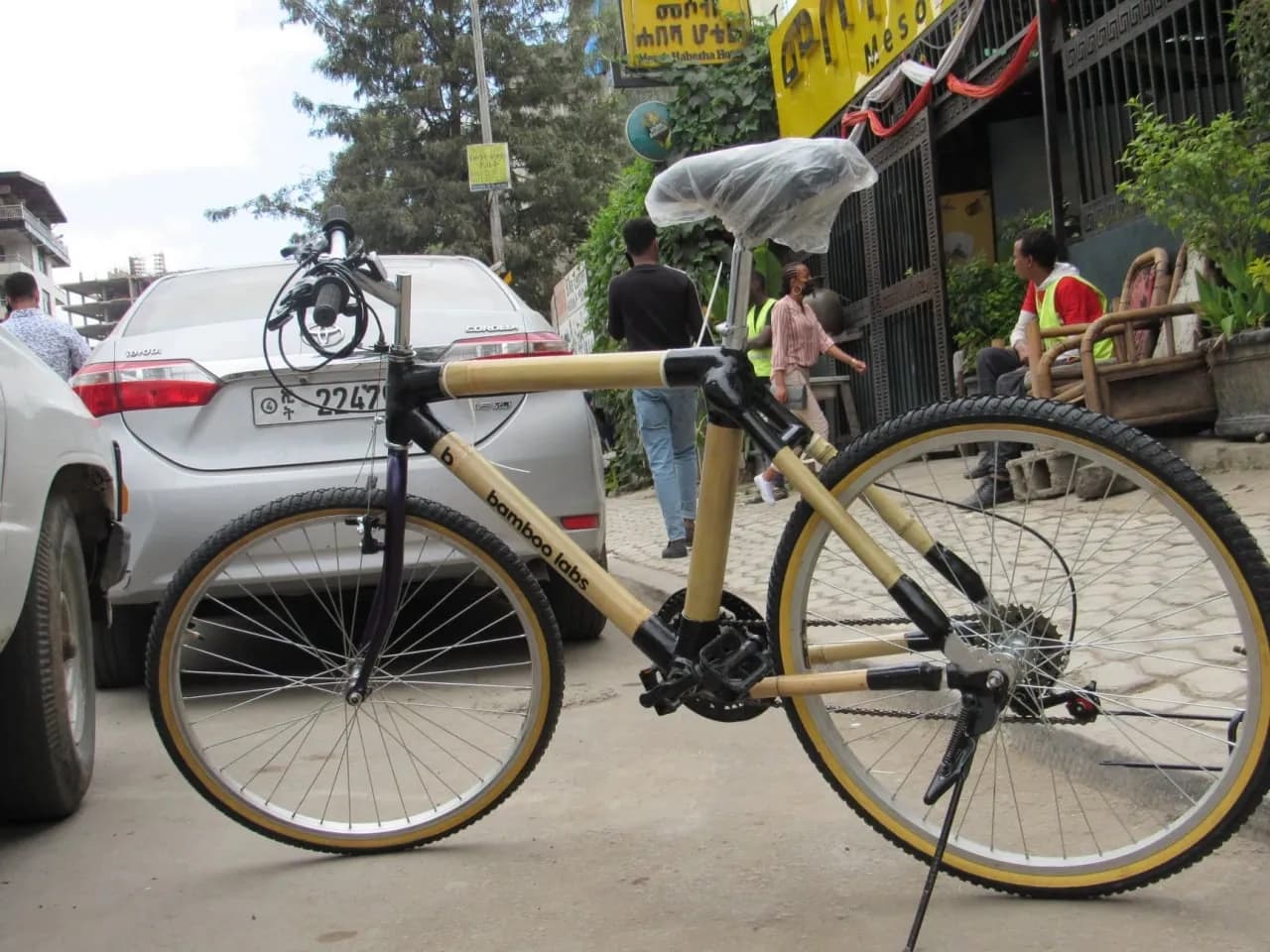Progress for 0 ad
Progress for 1 ad
Progress for 2 ad
Progress for 3 ad


Daniel Metaferiya
Addis Ababa, Ethiopia

One Ethiopian enterprise is reinventing the wheel with the production of bicycles and wheelchairs made from bamboo trees. Bamboo Labs, a four-year-old social venture, focuses on creating a niche market with a diverse range of affordable mobility solutions sourced from this resilient, fast-growing plant.
Founder Abel Hailegiorgis and his five employees spend their days measuring, cutting, scraping, and polishing the tree at their workshop located around Urael Church in Kirkos District, Addis Ababa. He hopes to create a thriving industry that leverages the unique properties of the plant through innovative designs.
“We have an abundant supply of bamboo,” Abel told Shega.
Ethiopia is home to two major species of bamboo: Yushania alpina (highland bamboo) and Oxytenanthera abyssinica (lowland bamboo), both of which thrive in the country's diverse ecological zones.
These species are indigenous to Ethiopia and endemic to Africa, confined to the sub-Saharan region. More than 1500 bamboo species are found in the world, covering 14 million ha of land.
Ethiopia has about 1 million ha of high and lowland bamboo, the latter being more dominant. 67% of African bamboo resources and more than 7% of the world total are found in Ethiopia.
The company sources its bamboo from lush forests in Sidama Regional State, Wolaita, and Injbara zones when it reaches an optimal maturity of 3-5 years.
Once harvested, Abel and his team put the bamboo through a rigorous treatment to prevent rot, insect infestation, and cracking. They usually immerse it in boric acid to ensure durability before cutting it up into sizes fitted for their products.
“It takes about three days,” Abel explains.
An average of three bamboo sticks is chopped up for most wheelchairs, while designs for bicycles and other mobility items could defer. The company’s mobility fleet, priced between 10,000 and 18,000 birr offers an affordable local alternative to imported products.
Bamboo Labs has produced over 100 bicycles and wheelchairs, primarily serving a community of expats. However, the company aims to boost sales to 500 this year.
Abel recognized the challenges of sustainable transport alternatives in Addis Ababa before starting the company. He wanted to help in alleviating transport challenges faced by urbanites while contributing to a reduction in carbon emissions by promoting non-motorized transport options.
Abel’s plans are also synchronized with the city administration's target of reducing the number of internal combustion engine vehicles in Addis Ababa. Walking, cycling, and expanded use of public transportation are frequently recommended by officials to meet the increasing demand for transport options.
In line with these objectives, bicycle lanes stretching 100 km and 96 km of pedestrian walkways were constructed last year as part of the first phase urban corridor development project.
Abel also identified the lack of affordable mobility options for people with disabilities as an area in need of quick innovation.
“Bamboo-framed wheelchairs are cost-effective and durable,” he underscores.
As an alumnus of the Young African Leaders Initiative (YALI), Abel’s ambitions carry continental prospects. He also envisions sending his products to the US market in the near future by consistently perfecting their bamboo-based innovations.
Few companies in Ethiopia are involved in the same business as Abel; African Bamboo is one. The company is now operating in Hawassa Industry Park, producing high-quality floor tiles and exporting to foreign markets.
Bamboo has a big potential for carbon credit generation. A few months ago, the Council of Ministers introduced the first set of laws to regulate the uncharted and untried frontier of carbon trading in Ethiopia. The ‘Forest Development, Protection, and Utilization’ regulation allows private investors and local communities to develop and safeguard forests and benefit from carbon sale revenues.
As the world shifts towards eco-friendly alternatives, globally several companies are building bicycles from bamboo, with many based in emerging markets
👏
😂
❤️
😲
😠

Daniel Metaferiya
Daniel Metaferiya is a writer, journalist and radio host, with a keen interest in technology. He follows developments in Ethiopia's startup ecosystem closely and is passionate about profiling unique MSMEs.
Your Email Address Will Not Be Published. Required Fields Are Marked *